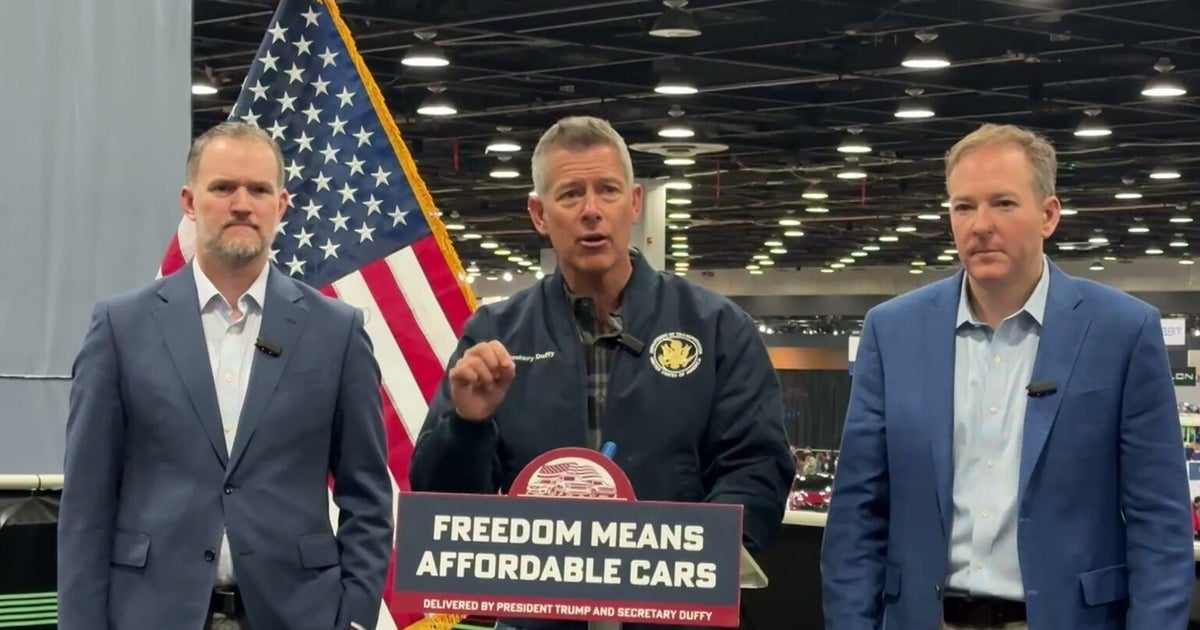Detroit At CES: Visteon's New Auto Displays, GM-Google Partnership, Bosch Tech
LAS VEGAS (WWJ) - Van Buren Township-based Visteon Corp. (NYSE: VC) is introducing new in-vehicle displays at the 2014 International CES, formerly known as the Consumer Electronics Show, this week in Las Vegas.
Also at CES, a new Google-based alliance including General Motors Corp. announced new plans to bring the Android platform to the car.
Visteon's new display, dubbed LightScape, combines the highest quality 3D display performance with touch, voice, sound and haptic technologies in a 12.3-inch display. It's scheduled to launch in an as-yet unnamed European luxury vehicle in 2016.
Jim Farell, associate director for vehicle platforms at Visteon Electronics, said the display is designed to replace the instrument cluster. It offers HDTV resolution of 1,920 by 720 pixels -- but more importantly, he said, it offers many options in what kind of information is displayed on the screen.
"The power of this I think comes from being able to show the driver exactly what they need exactly when they need it in the format that's most convenient for them," Farell said.
Like what, exactly?
"We have one customer who's using this in an SUV, and when it's off road, the speedometer scales down to zero to 30 mph, and the displacement of each of your struts is displayed as you go over stuff," Farell said. "That's information you never could have given the driver in a conventional mechanical display."
Another customer, Farell said, uses the display in a sports car, "and when you're in racing mode, the tachometer becomes front and center and takes up most of the space on the display."
In short, Farell said, the display is a lot more than pretty -- although it's that too.
Visteon is also displaying two cockpit concepts: HMeye, which is an interface controlled by the driver's eye gaze and head direction data, captured on camera, and Horizon, which uses 3D gesture recognition to interact with the information menu. An advanced camera system maps the driver's gestures -- which, in turn, replicates the motion as a virtual hand on the cockpit's display. Horizon also features a dual-layered display offering two depths of view, enabling the user to virtually "push" through the graphics on the first pane to access the second.
More at www.visteon.com.
Meanwhile, Google's Open Automotive Alliance includes Google, GM, as well as Audi, Honda, Hyundai and the chip designer Nvidia.
Google says the alliance will bring Android's open development style to the car, allowing automakers to more easily bring cutting-edge technology to their drivers, and create new opportunities for developers to deliver new experiences for drivers and passengers in a safe and scalable way.
"Partnering with Google and the OAA on an ecosystem that spans across vehicles and handheld mobile devices furthers our mission to bring vehicles into our owners digital lives and their digital lives into their vehicles," said Mary Chan, president of GM's Global Connected Consumer unit. "We see huge opportunities for the Android platform paired with OnStar 4G LTE connectivity in future Chevrolet, Buick, GMC and Cadillac vehicles."
More at http://openautoalliance.net.
Also, the North American headquarters of the German auto supplier Bosch used CES to introduce what it's calling an automotive first -- a combined pressure, humidity and temperature sensor in a single package, called the BME280 Integrated Environmental Unit. Applications include home automation control, personalized weather stations and sports and fitness devices. The device is tiny, less than a tenth of an inch in all three dimensions.
Bosch is also showing off a variety of other products, including a price breakthrough in 220-volt electric vehicle charging stations, the $449 Power Max, as well as a suite of autonomous vehicle technologies outside in the parking lots of the Las Vegas Convention Center called the Driverless Car Experience.







